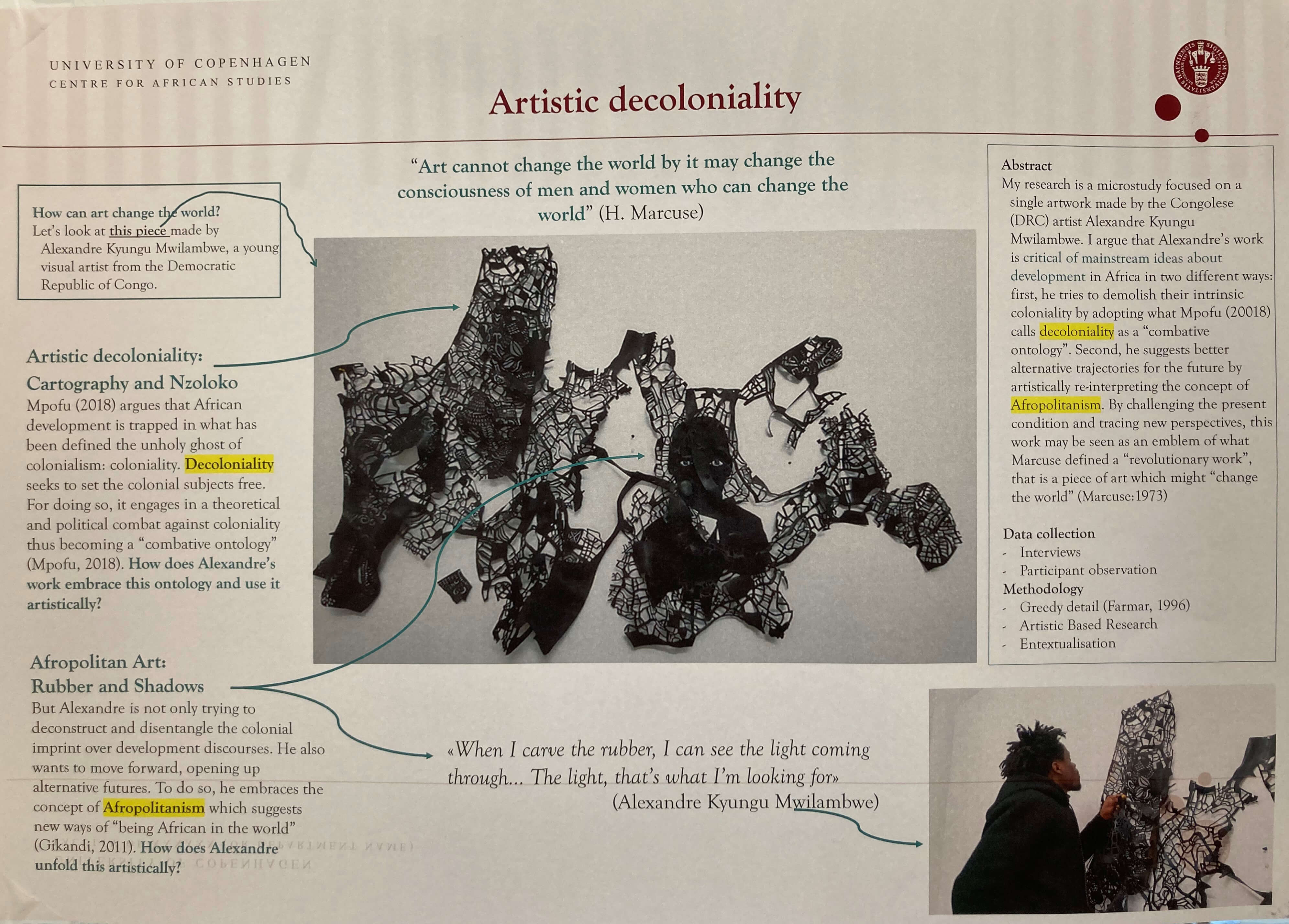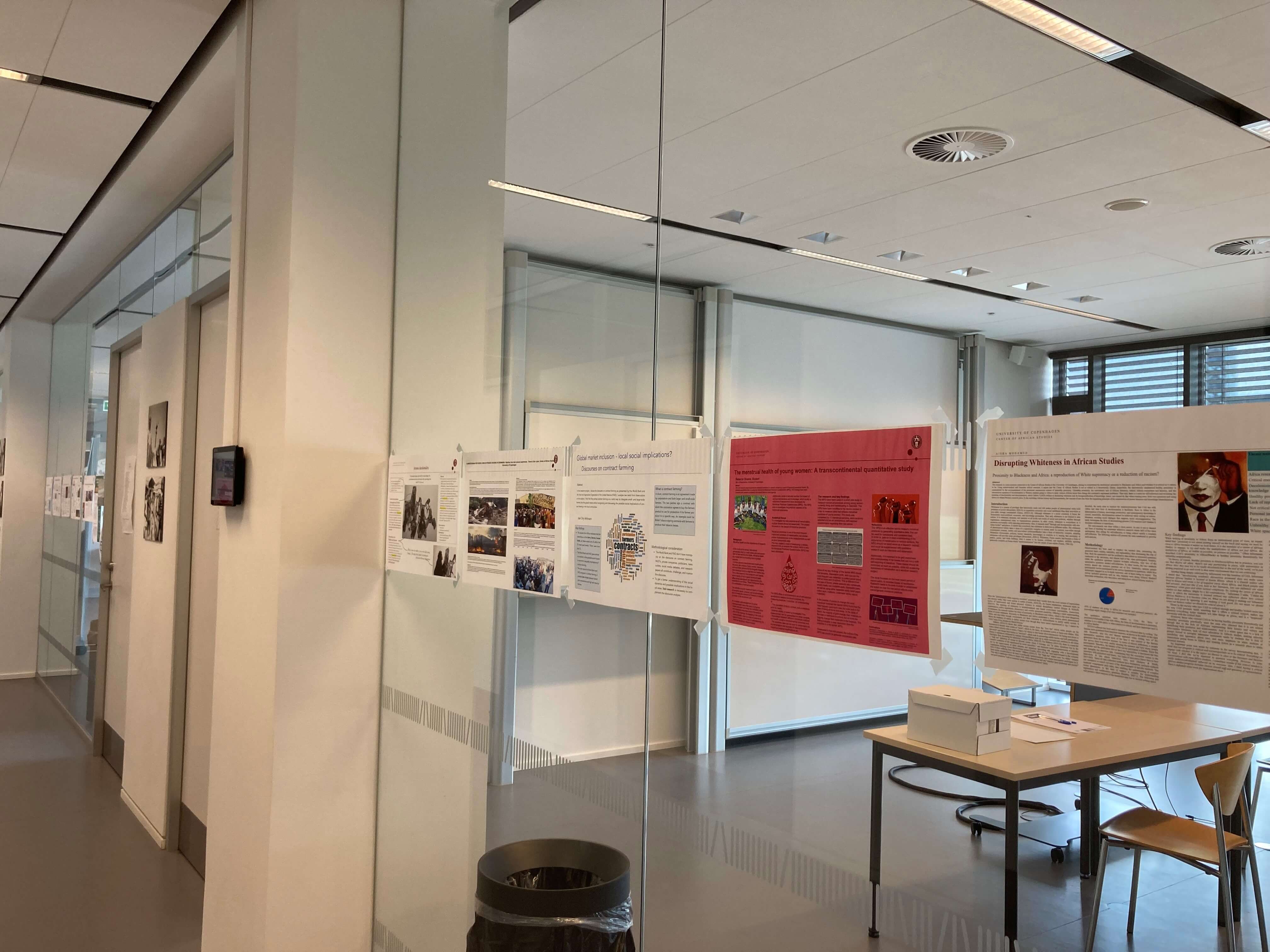PRIVACY Postdoctoral researchers invited to teach at the Center of African Studies (CAS) methods course with a focus on digital
Karen Lauterbach, Associate Professor and Director of the Center of African Studies, invited the two Privacy Scholars, Natacha Klein Käfer and Natália da Silva Perez, with a scholarly profile on Digital Humanities to co-teach a course on Advanced Research Methods, which is part of the two-year MA-programme in African Studies.
The Faculty of Theology and the University of Copenhagen have a strategy to experiment with teaching digital methods. The course has recently finished and students and teachers had a fruitful time interacting. The culmination point for all involved was the poster exhibition, where all the students presented a research exercise through posters. 
We have asked Simona Bianchi, one of the students, about her experiences and gains from taking the course:
- I really enjoyed the course. I found it relevant, clear, and challenging. And I think that the challenging part was also my best experience: I had to try out new tools, go ‘into the field’ to do my own research... in other words, learn and practice something different from what I'm used to, and I loved it!
What aspects of the course surprised you?
- I was ‘surprised’ by the quantity of different methodological approaches and the meticulous attention we should pay to them.
Will you use these new digital skills/methods in future student assignments?
- Yes! I already did it for my Politics and Development paper, and I'm doing it for my Green Transition paper too!
(Poster made by Simona Bianchi)
We have also asked the two PRIVACY scholars Natacha Klein Käfer and Natália da Silva Perez about their experiences from teaching the course.
What was your best experience with teaching this course?
Natacha: My best experience was seeing the results of what the students put together for their research posters. Even when their background and project ideas were distant from my field of expertise, I could see how they managed to take the tools we gave them and make them their own. I am very thankful to Karen Lauterbach for allowing us this experience and my colleague Natália da Silva Perez for coming up with the idea!
Natália: I enjoyed the conversations that emerged from the practical exercises we prepared for the students. I was particularly happy to have students stop me in the corridors to chat about the connections they saw between topics from class and their research interests. It was very rewarding when my examples from historical research resonated with them. They managed to make connections with their own fields of interest, which, in most cases, are present-day topics, not historical topics.
Did the students also give you insights that you can use in future research projects?
Natacha: The students definitely contributed to how I will approach future research projects. Having a perspective coming from fresh eyes really allows you to narrow down what is important to pass on. Moreover, having close contact with a new generation of students helped me notice the change in framework that is needed in the academic field.
Natália: Yes! I was so happy with the high level of engagement from the students. Our conversations were animated and they very often had insightful comments to contribute, sometimes about the themes we discussed, sometimes about methodology. Some of them, for example, shared previous experiences with digital humanities tools, others - who didn't have previous experience - asked questions that demonstrated interest and critical thinking about the effects of the tools.
Did something during the course surprise you?
Natacha: The course reminded me that, in a room full of students, you never know what will catch on for each of them. Things I thought would not grab their attention showed up in the research posters, which was very nice to see.
Natália: I was particularly pleased with the courage that some students demonstrated. Some of them chose research topics that are both crucial for African Studies, but also difficult to approach, such as racism and white privilege, for example, and did so with intellectual competence, but also kindness. The poster session with which we ended the course was an opportunity for them to demonstrate their research skills, but also an opportunity for them to demonstrate their social and political engagement.
The posters are exhibited at the CAS corridor. CAS is located at the Faculty of Theology, on the 1st floor in area 8B.

